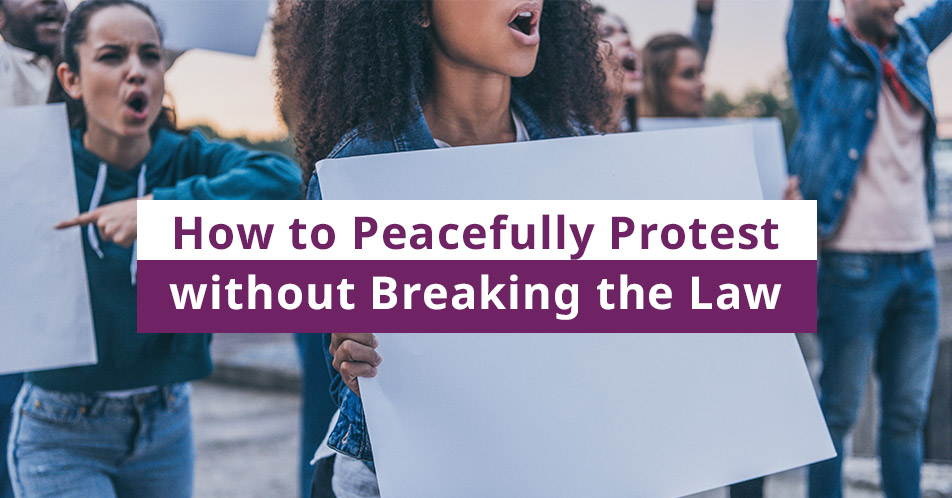
How to Peacefully Protest without Breaking the Law
Written on October 30, 2019. Posted In Uncategorized
Under the first amendment, you are allowed to gather and protest peacefully. You are allowed to air grievances without the fear of punishment, and you are allowed to gather with other citizens to do so peacefully. However, what you are not allowed to do is break the law and create a protest that is not peaceful. Many people have strong opinions about what they are protesting for or against, so things can get heated pretty quickly. If you are planning a protest, you may want to learn how you can do so peacefully, without breaking any laws. Here is more information on peacefully protesting.
What Can Be Regulated in Regards to Protests?
While you have the right to peacefully protest, counties, cities and states are legally allowed to enforce rules and regulations in regards to protests. Depending on where you are protesting, you may be required to obtain a permit to protest. The area you are protesting in is also legally allowed to impose time restrictions, noise restrictions and even location restrictions. For example, when the president is in town, protestors must stay a certain distance from the president to protect his safety. Time restrictions and noise restrictions help to ensure local area residents and employees can sleep, work and feel safe in their community.
How Can You Learn About Your Rights When Protesting?
The American Civil Liberties Union, or ACLU, is one of the best resources for learning your rights. They have information published on their website that helps you to learn what your rights are when protesting and what is illegal. They also provide free Know Your Rights information that can be distributed to those you are protesting with, as well as any law enforcement officers trying to interfere with the protest. If you are planning a sizable protest, you may want to call the ACLU and obtain information from them about your rights.
What Should You Do If You Are Arrested While Protesting?
If you are arrested while protesting, you should always go peacefully. You can be charged with additional charges, such as resisting arrest if you fail to do so. Once you can, contact a lawyer who has experience handing protests. The ACLU can also help put you in touch with attorneys. If your rights were violated, the charges against you might be dismissed.
The steps you take prior to a protest and while protesting can help to ensure you stay safe and out of trouble while protesting. However, if things get out of hand, you may be arrested and charged with trespassing, disorderly conduct and/or disturbing the peace. Fortunately, these are crimes for which bail is granted. Once bail is set, a bail bonds company can help you to get out of jail. At Free at Last Bail Bonds, we understand the importance and urgency of reuniting families. If you or a loved one needs our services, we are here for you 24 hours a day at 470-410-3409.

